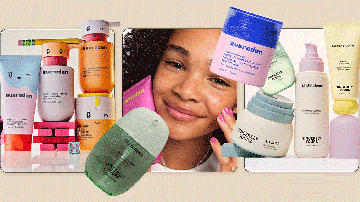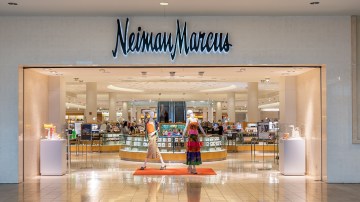In this week’s Store Associates Strategies series, Glossy spotlights the high value of strong store associates amid consumers’ return to retail.
The fashion industry is more global than ever. And while e-commerce has made it easier for brands to become international brands, opening a retail store remains an important way for brands to expand into new markets — many are targeting lucrative cities like Shanghai, Seoul and Dubai. Balenciaga opened its biggest store in China late last year, and Louis Vuitton and Dior are expected to open Chinese flagships this year.
But staffing a retail store is hard enough even when it’s in a brand’s home country. A June report from the French luxury trade group Comité Colbert found that 60% of luxury brands are struggling to attract talent for their boutiques. Add a language or cultural barrier, and the task becomes even more complex. Glossy spoke with several fashion brands that are in the midst of an international retail expansion to learn how they’ve approached the challenge.
Trevor Hardy, the CMO of the British men’s luxury brand Orlebar Brown, said his team takes a methodical approach to new markets. Orlebar Brown is planning to open 18 new stores around the world this year and has already opened several in cities like Bangkok, Phuket and Abu Dhabi.
Hardy told Glossy the team starts every store staffing process by hiring a single employee – a store manager – who knows the area and the retail scene intimately. This role is the one that takes the longest to fill and is the most important, he said.
“We hire not necessarily for deep retail experience but for local experience,” he said. Hires at Orlebar Brown’s Thailand stores have backgrounds at other luxury retail stores, but also experience in retail environments like auto shops. “The most important thing is that they live in the same world as the customers, that they speak the same language.”
The store manager is typically hired about three months before the store’s opening, and the rest of the store staff is hired about two months after that. What follows is a period of intense training on products, merchandising and brand image with members of Orlebar Brown’s corporate team who fly out to the location. Orlebar Brown does not ask any of its employees to relocate to a new location, preferring to hire locals. But Hardy said he does take into account if current employees express an interest in moving.
“We have someone running one of our New York stores who wants to go to the Caribbean, so we’re looking for an opportunity for them,” he said.
Reto Peter, the founder of the made-to-measure menswear brand Edit Suits, said his team has a slightly different approach. Edit Suits has showrooms in the U.K. and recently expanded to Singapore. While Peter’s first step is hiring a local store manager, the company does temporarily relocate team members to the new locations to get the stores up and running.
“This ensures a smoother start and provides immediate on-the-ground leadership,” Peter said. “Once that foundation is in place, we focus on supporting the [team] with the knowledge, tools and cultural understanding they need to build a team that can grow sustainably and independently.”
Training can take a different form depending on the market. For Orlebar Brown, Hardy said the basic fundamentals of customer service remain the same, but more work goes into translating tricky technical concepts like the fabric and construction of its garments into the local language.
Peter said Edit Suits does not use a recruiting company, preferring to keep that process internal. But it does work with local HR consultants who can advise on local labor and hiring laws, which can differ widely from country to country.
For example, minimum wage, worker’s compensation and hiring discrimination rules can be significantly different, ranging from highly restrictive in places like the E.U. to virtually nonexistent in countries like the United Arab Emirates.
“It’s one of the biggest challenges brands face when expanding — especially when trying to maintain consistency across markets,” said Ceri Gravelle, founder of Fortem & Mode, a British staffing service that specializes in luxury retail. Fortem & Mode has helped staff stores for luxury giants like Chanel and LVMH. “That’s why many brands lean on external support with regional knowledge — not just legal compliance, but an understanding of the market’s expectations when it comes to pay, benefits and workplace culture.”
Despite the challenges, it’s clear that fashion brands are still investing heavily in international stores. Vuori, the activewear brand with a $5.5 billion valuation, announced on Monday more store openings in China after opening its first store there late last year. It’s also opening its first store in South Korea soon via a franchise partner.
Many of the brands Glossy spoke to for this story said the same thing: Opening one store in a market makes it easier to open more. For Vuori, which plans to have over 100 stores globally by the end of the year, with more than 15 outside the U.S., it’s also a path toward future growth. Vuori’s svp of international Andy Lawrence said the company views international expansion as a “slingshot” that can help quickly launch the brand into “sustainable acceleration.”
“A lot of our brand is visual — including the stores, the marketing— and tactile, including the clothes. Those are key elements of brand identity that stay largely consistent,” Lawrence said. “In terms of hiring, we have good counsel to make sure we’re complying with local laws and regulations. Finding talent can be a challenge anywhere, but we’re locked in on bringing great people into the brand, and so far, we have been able to do just that.”




